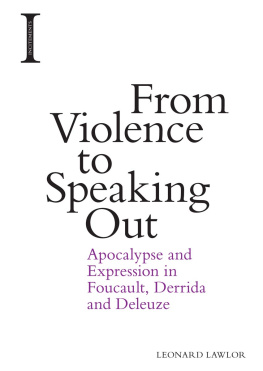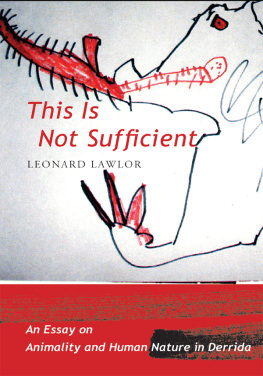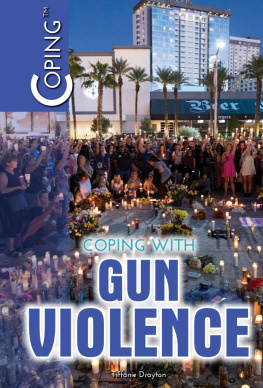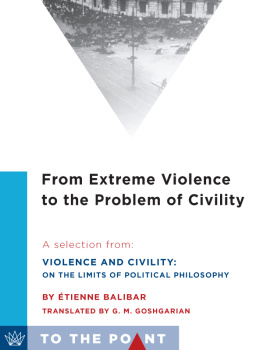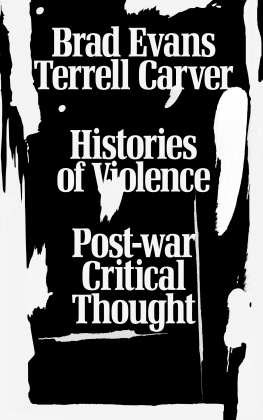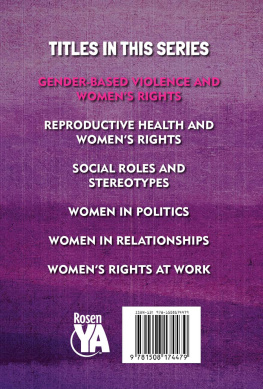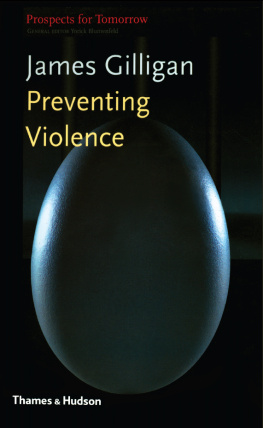From Violence to Speaking Out
Incitements
Series editors: Peg Birmingham, DePaul University and Dimitris Vardoulakis, University of Western Sydney
An incitement is a thought that leads to a further thought or an action that solicits a response, while also testing the limits of what is acceptable or lawful. The books in this series, by prominent, world class scholars, will highlight the political import of philosophy, showing how concepts can be translated into political praxis, and how praxis is inextricably linked to thinking.
Editorial Advisory Board
tienne Balibar, Andrew Benjamin, Jay M. Bernstein, Rosi Braidotti, Wendy Brown, Judith Butler, Adriana Cavarero, Howard Caygill, Rebecca Comay, Joan Copjec, Simon Critchley, Costas Douzinas, Peter Fenves, Christopher Fynsk, Moira Gatens, Gregg Lambert, Leonard Lawlor, Genevieve Lloyd, Catherine Malabou, James Martel, Christoph Menke, Warren Montag, Michael Naas, Antonio Negri, Kelly Oliver, Paul Patton, Anson Rabinbach, Gerhard Richter, Martin Saar, Miguel Vatter, Gianni Vattimo, Santiago Zabala
Available
Return Statements: The Return of Religion in Contemporary Philosophy
By Gregg Lambert
The Refusal of Politics
By Laurent Dubreuil, translated by Cory Browning
Plastic Sovereignties: Agamben and the Politics of Aesthetics
By Arne De Boever
From Violence to Speaking Out: Apocalypse and Expression in Foucault, Derrida and Deleuze
By Leonard Lawlor
Forthcoming
Agonistic Mourning: Political Dissidence and the Women in Black
By Athena Athanasiou
From Violence to Speaking Out
Apocalypse and Expression in Foucault, Derrida and Deleuze
Leonard Lawlor

In Memory of Hugh J. Silverman
Edinburgh University Press is one of the leading university presses in the UK. We publish academic books and journals in our selected subject areas across the humanities and social sciences, combining cutting-edge scholarship with high editorial and production values to produce academic works of lasting importance. For more information visit our website:
www.edinburghuniversitypress.com
Leonard Lawlor, 2016
Edinburgh University Press Ltd
The Tun Holyrood Road, 12(2f) Jacksons Entry, Edinburgh EH8 8PJ
A CIP record for this book is available from the British Library
ISBN 978 1 4744 1827 0
The right of Leonard Lawlor to be identified as the author of this work has been asserted in accordance with the Copyright, Designs and Patents Act 1988, and the Copyright and Related Rights Regulations 2003 (SI No. 2498).
Contents
Acknowledgements
I would like to thank Daniel J. Smith, who provided invaluable insights on a draft of this book. I would also like to thank Janae Sholtz and Daniel J. Palumbo for their contributions to . My longtime friend, and interlocutor, Fred Evans, read most of the chapters in draft form. I cannot thank him enough for his feedback, guidance, and inspiration. Finally, as always, I must thank my family for enduring my almost-obsessive work habits. No one has shown more patience with me than my wife, Jennifer Wagner-Lawlor.
The following journals and presses have granted me permission to reproduce material for this book.
Lawlor, Leonard. The Flipside of Violence, Beyond the Thought of Good Enough, in A Blackwell Companion to Derrida, eds., Zeynep Direk and Leonard Lawlor (London: Wiley Blackwell, 2014). 56581.
Lawlor, Leonard. Is it Happening? Or the Implications of Immanence, in Research in Phenomenology (Brill Publishing), volume 44, issue 3 (2014). 34761.
Lawlor, Leonard. What Happened? What is Going to Happen? An Essay on the Experience of the Event, in The Ends of History: Questioning the Stakes of Historical Reason, edited by Amy Swiffen and Joshua Nichols (Abingdon, Oxon: Routledge, 2013). 17995.
Lawlor, Leonard. Following the Rats: An Essay on the Concept of Becoming-Animal in Deleuze and Guattari. Sub-Stance 37.3 (2008). 16987. by the Board of Regents of the University of Wisconsin System. Reproduced courtesy of the University of Wisconsin Press.
Lawlor, Leonard. Speaking out for Others: Philosophical Activity in Deleuze and Foucault (and Heidegger), co-authored with Andrea Janae Sholtz, for Between Deleuze and Foucault, edited by Daniel W. Smith, Thomas Nail, and Nicolae Morar (Edinburgh: Edinburgh University Press, 2016).
Preface
Like most prefaces, this one is being written from the completion of this book and it is written with a view to future projects. I anticipate writing another book to be called Violence against Violence (which will appear with Edinburgh University Press). In it, I hope to develop more thoroughly the ideas presented in From Violence to Speaking Out. In particular, Violence against Violence will develop the ethical position that is only hinted at here. Although it does not appear so, From Violence to Speaking Out is a work in ethics, taking the word ethics in its broadest sense. The position I am advocating here and in my next book is opposed to any ethical (or political) position that advocates the repression of potentiality or that aims to control potentiality by imposing relative ends on whats possible. The opposition to relative ends is why From Violence to Speaking Out starts with globalization and ends with poverty.
Being opposed to the imposition of relative ends, From Violence to Speaking Out takes its inspiration from Kant. Yet, the argumentation and position advocated here do not resemble any of the contemporary Kantian discourses. The lack of Kantian argumentation, however, does not mean that the argumentation resembles utilitarianism. In fact, it is exactly the opposite. What From Violence to Speaking Out advocates is a non-utilitarian relation to others, even a hyperbolic non-utilitarian relation to others. In addition, the argumentation and position advocated here do not resemble those of care ethics although I am sympathetic to care ethics. Because the position advocated here is opposed to all possession of others, in other words, because the position advocates the releasement of others, it seems to resemble a non-caring relation. The idea would seem to be: dont possess others; just let them alone; dont care about what others are doing. However, in order to achieve the releasement of others, one must confront the question of how one can know whether one has truly released another from possession. Doesnt another person or animal need protection and therefore care so that it is able to develop and be free? Doesnt protection, however, amount to imprisonment? Isnt care a kind of possession? These are hard questions to answer. If one wants to truly release others from their pain, suffering and bondage, these questions require the greatest effort of thinking. Although Kantian inspired, opposed to utilitarianism, and sympathetic to care ethics, the argumentation and the position advocated do not emerge from any ongoing debate in contemporary ethics. My research in phenomenology Husserl, Heidegger, Merleau-Ponty and in what we used to call post-structuralism Derrida, Deleuze, and Foucault gave birth to this book. However, if I were to attach the ideas presented here to any previous philosopher it would be Nietzsche. The primary issue in From Violence to Speaking Out is

